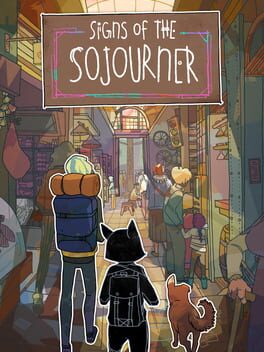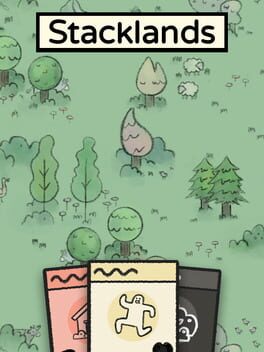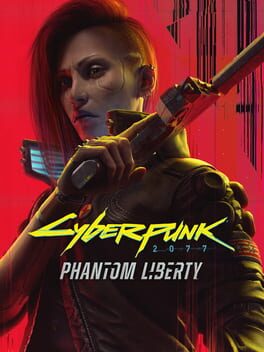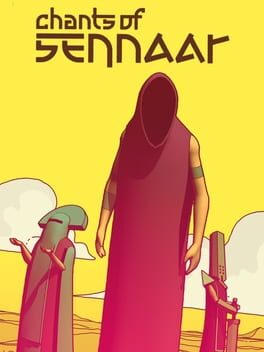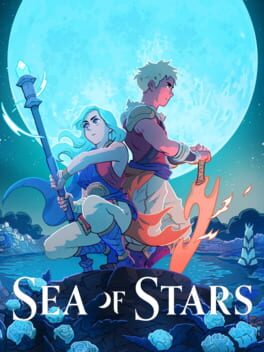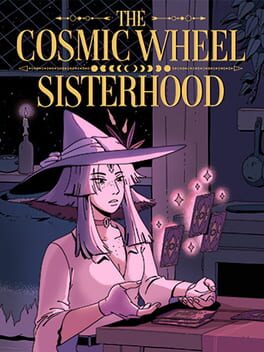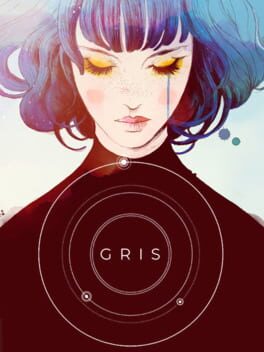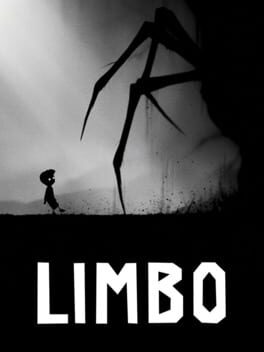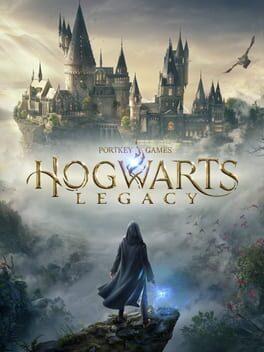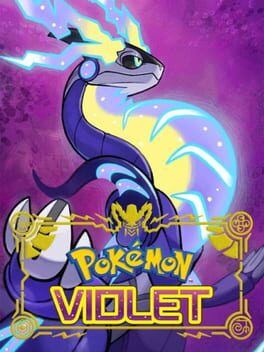robv3r
BACKER
Social interaction is the process of reciprocal influence exercised by individuals over one another during social encounters. - Introduction to Sociology, 2nd edition, William Little
When we are interacting with someone, we have a limited set of tools, values, and techniques. When the other person matches yours, everything is smooth. You are able to communicate, to reach an understanding. When not, communication does not work. It's awkward, lonely, you feel like you don't fit. And if you are tired, communication is harder. You have less patience, your brain works at a slower pace.
Every person you interact with influences you, leaves a trace, changes the way you interact with other people. You learn something from them, and that person takes something from you, too. When you do this long enough, with people out of your comfort zone, you can find yourself being a different person. A person that is not able to connect anymore with the people you use to connect with.
As you gain more experience, you start to have more complex tools, to understand different kinds of people, to adapt yourself to the person you are communicating with. You grow up, you learn from experience.
Why am I talking about this? Because this game is able to represent the complexity of social interaction, with all these nuances, in a simple domino-like deck builder game. Yes, the story and characters could be better.
But the core mechanic is just fantastic.
When we are interacting with someone, we have a limited set of tools, values, and techniques. When the other person matches yours, everything is smooth. You are able to communicate, to reach an understanding. When not, communication does not work. It's awkward, lonely, you feel like you don't fit. And if you are tired, communication is harder. You have less patience, your brain works at a slower pace.
Every person you interact with influences you, leaves a trace, changes the way you interact with other people. You learn something from them, and that person takes something from you, too. When you do this long enough, with people out of your comfort zone, you can find yourself being a different person. A person that is not able to connect anymore with the people you use to connect with.
As you gain more experience, you start to have more complex tools, to understand different kinds of people, to adapt yourself to the person you are communicating with. You grow up, you learn from experience.
Why am I talking about this? Because this game is able to represent the complexity of social interaction, with all these nuances, in a simple domino-like deck builder game. Yes, the story and characters could be better.
But the core mechanic is just fantastic.
2024
In need of serotonin? Find a combination of jokers that, together with the rest of the power ups you have gotten, allows you to break the game, and watch the score going up while a fire effect tells you that you did it.
Balatro is perfect, is balanced, is not frustrating. The game loop forces you to adapt, to try new things, to find new strategies, just because it is FUN!! A game that you don't finish, a game you have in your library and play while you are eating.
A timeless hit.
Balatro is perfect, is balanced, is not frustrating. The game loop forces you to adapt, to try new things, to find new strategies, just because it is FUN!! A game that you don't finish, a game you have in your library and play while you are eating.
A timeless hit.
2022
What starts with a "look, a cute resource management game with cards" ends with hours of entertainment in a game that, behind a simple interface and game loop, hides an addictive loop that shines specially in the first few hours of a run.
It's fast-paced, and you can feel the pressure at the beginning to get enough resources to survive another day. And another day, and another, and... And you have spent hours playing without noticing.
The most notable aspect is how it has implemented the process of discovering new recipes. Maybe one of your villagers find an idea while exploring the mountains. Or maybe you have decided to try what happens if you stack a berry and an apple together.
The late game may feel a bit more repetitive, but it's a game definitely worth trying, and ideal for playing in a portable device.
It's fast-paced, and you can feel the pressure at the beginning to get enough resources to survive another day. And another day, and another, and... And you have spent hours playing without noticing.
The most notable aspect is how it has implemented the process of discovering new recipes. Maybe one of your villagers find an idea while exploring the mountains. Or maybe you have decided to try what happens if you stack a berry and an apple together.
The late game may feel a bit more repetitive, but it's a game definitely worth trying, and ideal for playing in a portable device.
The same fun to play game, in a smaller space, with a more linear pacing, which makes it WAY better.
It solves all the narrative problems I experienced with the first one. Now your decisions matter, now it's hard to make them. The first mission is thrilling as no other in the game. It has something to say when it talks about politics, it has something to say when it talks about humans. Honor, survival, duty...
Endure and survive. I was going to say that I wish that all the game was like the DLC, but probably what makes the DLC better is it being a shorter experience. I don't know if it's enough to make you play the game, but definitely makes it way better.
It solves all the narrative problems I experienced with the first one. Now your decisions matter, now it's hard to make them. The first mission is thrilling as no other in the game. It has something to say when it talks about politics, it has something to say when it talks about humans. Honor, survival, duty...
Endure and survive. I was going to say that I wish that all the game was like the DLC, but probably what makes the DLC better is it being a shorter experience. I don't know if it's enough to make you play the game, but definitely makes it way better.
2020
A good game, fun to play, but that falls short in more than the bugs.
While the game has the same structure as The Witcher 3, you can feel how it works way worse here. I kinda feel that having everything in a city goes against CD Projekt style for emergent narrative and side quests. In The Witcher, it was organic. You travel the world, arrive to a new town, an NPC provides you a secondary quest. In Cyberpunk, side and main quests just pop up with a phone message or call. That is even more annoying when some missions require you to wait in order to move forward, when the missions only appear after certain time... You never know when you are done with a story line, specially at the endgame. It's the worst of open world games, you don't even need to explore the world to meet an NPC, magically a fixer will call you and put you in touch.
And the narrative feels... empty. Survival is your goal, and everything fits properly for a mercenary. But the game talks about the risks of corporatism, while the gameplay encourages to use the amazing Cyberware that those corpos make. Developing your relationship with the characters you meet is nice, but in my opinion the effects of each story line is diluted into merging them all together, making them available and intertwined. All feels like it falls short. Some side quests talk about politics without saying anything.
Which is worse, is the fake feeling of how your choices affect the story, having to choose a path based on... ¯\(ツ)/¯ No real ethic or moral debate, no real pressure.
I had real fun, and it's a better RPG than Starfield by far, but falls short in comparison with The Witcher 3, and is not the great game we expected.
While the game has the same structure as The Witcher 3, you can feel how it works way worse here. I kinda feel that having everything in a city goes against CD Projekt style for emergent narrative and side quests. In The Witcher, it was organic. You travel the world, arrive to a new town, an NPC provides you a secondary quest. In Cyberpunk, side and main quests just pop up with a phone message or call. That is even more annoying when some missions require you to wait in order to move forward, when the missions only appear after certain time... You never know when you are done with a story line, specially at the endgame. It's the worst of open world games, you don't even need to explore the world to meet an NPC, magically a fixer will call you and put you in touch.
And the narrative feels... empty. Survival is your goal, and everything fits properly for a mercenary. But the game talks about the risks of corporatism, while the gameplay encourages to use the amazing Cyberware that those corpos make. Developing your relationship with the characters you meet is nice, but in my opinion the effects of each story line is diluted into merging them all together, making them available and intertwined. All feels like it falls short. Some side quests talk about politics without saying anything.
Which is worse, is the fake feeling of how your choices affect the story, having to choose a path based on... ¯\(ツ)/¯ No real ethic or moral debate, no real pressure.
I had real fun, and it's a better RPG than Starfield by far, but falls short in comparison with The Witcher 3, and is not the great game we expected.
With great power, comes great responsibility - Uncle Ben
Spider-Man are heroes. From the very beginning of the game, as it happened in the first game and in the spinoff, you get the feeling of power. An astonishing combat with a fearful villain to get the grips on the controls. The combos, the abilities, the way you move around the city. No one is better than Insomniac in giving you that. No other game can make swinging around the map so enjoyable and satisfying, and more with the addition of the wings. It makes the ridiculously small fast travel loading times a mere anecdote because why would you do that if you can swing around which is funnier??
But heroes have to face great dilemmas, too. What are you willing to give to protect people? Would you sacrifice your family? Your friends? What is the price to pay? The game does a very great job in making you connect with your relatives, with your family, so, when the time comes, you feel the struggle. Even though a little slow-paced at the end, the main story is entertaining and keeps you in the adventure.
The heart of the game, though, is the moments when you connect with the people, with the neighborhood. For me, the game is better when Miles is around. He is connected to his community, his side quest is related to protecting their cultural heritage, he interacts with his neighbors, cares about their lives. It's amazing to see how, as Peter falls to his inner demons, Miles grows. He is no longer a teenager, he understands the responsibility. To be a better Spider-Man than Spider-Man. His leap of faith.
The hidden gems, the moments that hit harder emotionally, are all small moments that happen when you get closer to the people you are protecting. Siting in a bank with a lost grandpa. Guiding a flock of pigeons to a new home (I'm not going to cry, I'm not going to cry...)
The city is covered in graffiti thanking Spider-Man, but yet the main story feels disconnected from the ordinary people. I wish Insomniac would give more weight to this part of the story. As well as doing puzzles that are actually puzzles and not solved by the game for you. The game is solid, it's fun, it's addictive. Even if it's the same game as the first one. I always end up getting the platinum trophy. But those details are the difference between a great game and an excellent one.
With great ability, comes great accountability - Jefferson Davis
Spider-Man are heroes. From the very beginning of the game, as it happened in the first game and in the spinoff, you get the feeling of power. An astonishing combat with a fearful villain to get the grips on the controls. The combos, the abilities, the way you move around the city. No one is better than Insomniac in giving you that. No other game can make swinging around the map so enjoyable and satisfying, and more with the addition of the wings. It makes the ridiculously small fast travel loading times a mere anecdote because why would you do that if you can swing around which is funnier??
But heroes have to face great dilemmas, too. What are you willing to give to protect people? Would you sacrifice your family? Your friends? What is the price to pay? The game does a very great job in making you connect with your relatives, with your family, so, when the time comes, you feel the struggle. Even though a little slow-paced at the end, the main story is entertaining and keeps you in the adventure.
The heart of the game, though, is the moments when you connect with the people, with the neighborhood. For me, the game is better when Miles is around. He is connected to his community, his side quest is related to protecting their cultural heritage, he interacts with his neighbors, cares about their lives. It's amazing to see how, as Peter falls to his inner demons, Miles grows. He is no longer a teenager, he understands the responsibility. To be a better Spider-Man than Spider-Man. His leap of faith.
The hidden gems, the moments that hit harder emotionally, are all small moments that happen when you get closer to the people you are protecting. Siting in a bank with a lost grandpa. Guiding a flock of pigeons to a new home (I'm not going to cry, I'm not going to cry...)
The city is covered in graffiti thanking Spider-Man, but yet the main story feels disconnected from the ordinary people. I wish Insomniac would give more weight to this part of the story. As well as doing puzzles that are actually puzzles and not solved by the game for you. The game is solid, it's fun, it's addictive. Even if it's the same game as the first one. I always end up getting the platinum trophy. But those details are the difference between a great game and an excellent one.
With great ability, comes great accountability - Jefferson Davis
2023
Chants of Sennaar is a game about learning new languages. About understanding different cultures through their language. You have to learn what these people are trying to tell you, what is their culture and motivations. That's the puzzle to solve, and it's an impressive idea.
The learning mechanics resemble how learning an unknown language from scratch looks like. You face a new glyph, you try to guess what it means, you validate it later. You may see a gesture that suggests the meaning, you may see the glyph near an object... And sometimes your guess is wrong, and that's part of the fun. It does not limit your understanding of the world. Connecting the dots is a rewarding feeling I have not experienced since Outer Wilds.
Every culture has a different language. A different grammatical structure. The glyphs/words that form the language are impacted by the culture. You can even find the same concept having different connotations in different languages. Science, magic, faith, prejudices...
The game is also about how communication can bring us together. If we get to understand another culture we will find common ground, we will find ways to help each other. Communication. Empathy.
These ideas are masterfully embedded in a unique experience which is climbing this sort of Babel Tower to get to the top, to be the better human we can be.
Our language defines the way we think, the way we see the world, how we reason about it. It has a critical role in defining our culture, our traditions, our prejudices. It's also a barrier in how we interact with different cultures, it separates us. But, also, understanding the language of a different culture brings us closer to them, to think how they think, to see the world like they do (Arrival, Dennis Villeneuve, 2016).
The learning mechanics resemble how learning an unknown language from scratch looks like. You face a new glyph, you try to guess what it means, you validate it later. You may see a gesture that suggests the meaning, you may see the glyph near an object... And sometimes your guess is wrong, and that's part of the fun. It does not limit your understanding of the world. Connecting the dots is a rewarding feeling I have not experienced since Outer Wilds.
Every culture has a different language. A different grammatical structure. The glyphs/words that form the language are impacted by the culture. You can even find the same concept having different connotations in different languages. Science, magic, faith, prejudices...
The game is also about how communication can bring us together. If we get to understand another culture we will find common ground, we will find ways to help each other. Communication. Empathy.
These ideas are masterfully embedded in a unique experience which is climbing this sort of Babel Tower to get to the top, to be the better human we can be.
Our language defines the way we think, the way we see the world, how we reason about it. It has a critical role in defining our culture, our traditions, our prejudices. It's also a barrier in how we interact with different cultures, it separates us. But, also, understanding the language of a different culture brings us closer to them, to think how they think, to see the world like they do (Arrival, Dennis Villeneuve, 2016).
2023
Do you remember that feeling of joy playing videogames in your childhood? Nothing mattered, time was not passing by, you just had a smile on your face. The feeling when your parents call you out for dinner, and you just said "I can't save the game now, mom! Just 5 more minutes"? The feeling of remembering that closed door you saw some days ago when you find the key? That's Sea of Stars.
The are is amazing, the combat is very entertaining yet curated. It scales well, it makes you think in every random encounter. No more "Charmander used Ember" and it's over. Managing the maná, managing the turns, the skills... It's designed so behind a simple facade make every decision count.
As for the narrative, it's just a traditional fantasy/adventure story, closer to The Goonies than to being transcendental. And yet it saves some plot twists, secrets, and works well in what the game needs: be joyful.
Hugely recommended, unmissable if you have Game Pass. If Tunic was my hidden gem in 2022, Sea of Stars is the one in 2023.
The are is amazing, the combat is very entertaining yet curated. It scales well, it makes you think in every random encounter. No more "Charmander used Ember" and it's over. Managing the maná, managing the turns, the skills... It's designed so behind a simple facade make every decision count.
As for the narrative, it's just a traditional fantasy/adventure story, closer to The Goonies than to being transcendental. And yet it saves some plot twists, secrets, and works well in what the game needs: be joyful.
Hugely recommended, unmissable if you have Game Pass. If Tunic was my hidden gem in 2022, Sea of Stars is the one in 2023.
A self-fulfilling prophecy is a prediction that comes true at least in part as a result of a person's belief or expectation that said prediction would come true.
This game is a captivating, wonderfully written story. It has something to tell about fate, about ethics, about friendship, about identity, about politics (because, whether you like it or not, everything is politics). And it does it through conversations. A tea and a chat with an old friend. Or with a new acquaintance. Through their struggles and their successes. Their hopes and their fears. Every character is unique, is relatable. Every line of dialog is delightful and real.
And on top of that, Fortuna's ability to see the future. To read and create her own cards. At first, you start building a deck, wanting to make the right prediction. Then the game subverts that in a subtle way, but that changes how you approach the readings completely. And so, the cards become another way to interact with the narrative, making every decision count.
This game makes you reflect on your own political ideas and your values. How do you want the world to be if you had the chance to shape it. And, for me, it's about writing your own future rather than hoping for the designs of destiny. Like making a self-fulfilling prophecy.
This is going to be my favorite indie game of the year by far.
This game is a captivating, wonderfully written story. It has something to tell about fate, about ethics, about friendship, about identity, about politics (because, whether you like it or not, everything is politics). And it does it through conversations. A tea and a chat with an old friend. Or with a new acquaintance. Through their struggles and their successes. Their hopes and their fears. Every character is unique, is relatable. Every line of dialog is delightful and real.
And on top of that, Fortuna's ability to see the future. To read and create her own cards. At first, you start building a deck, wanting to make the right prediction. Then the game subverts that in a subtle way, but that changes how you approach the readings completely. And so, the cards become another way to interact with the narrative, making every decision count.
This game makes you reflect on your own political ideas and your values. How do you want the world to be if you had the chance to shape it. And, for me, it's about writing your own future rather than hoping for the designs of destiny. Like making a self-fulfilling prophecy.
This is going to be my favorite indie game of the year by far.
2018
Gris is a beautiful, emotional, and captivating journey through loss and pain. The stunning art, the gorgeous music, the game mechanics... are all there to take you through that journey. To transmit the emotions at every stage. It's a paradigm of what videogames can do. Not a single word, not a single line of text. If a game like The Last Of Us is narrative, a game like Gris is poetry.
(Maybe some story spoilers ahead, not sure, I prefer to warn)
Going through the stages of grief is a difficult introspective journey. Every stage you go through makes you stronger to face the rest. No stage is ever completely over, and any progress you have made can disappear at any moment as you are haunted by the ghosts inside you. You need to hit rock bottom in order to really start to move on. Even when you start seeing the light, everything can fall apart in a blink of an eye. The depiction of this through the game abilities, gameplay, and colors (recommended watching this video about the importance of colors) is just brilliant.
There is a quote from Dumbledore (Harry Potter) which says that "happiness can be found even in the darkest of places, if one just remembers to turn on the light". But turning the light on is never easy, and that's what Gris is all about.
(Maybe some story spoilers ahead, not sure, I prefer to warn)
Going through the stages of grief is a difficult introspective journey. Every stage you go through makes you stronger to face the rest. No stage is ever completely over, and any progress you have made can disappear at any moment as you are haunted by the ghosts inside you. You need to hit rock bottom in order to really start to move on. Even when you start seeing the light, everything can fall apart in a blink of an eye. The depiction of this through the game abilities, gameplay, and colors (recommended watching this video about the importance of colors) is just brilliant.
There is a quote from Dumbledore (Harry Potter) which says that "happiness can be found even in the darkest of places, if one just remembers to turn on the light". But turning the light on is never easy, and that's what Gris is all about.
It's late, you are sleepy and fighting an enemy; it is in the sky where you can't reach it, and suddenly you think, "Wait, what if I add a rocket to my shield? Will it get me there?". And it works. The physics and gameplay mechanics are there to give you total freedom. "Hey, these are the rules; use them". Do you want to lateral-think your way through a shrine without solving the puzzles? "Here is your Light of Blessing sir, I hope you enjoy it!"
The number of possibilities for making your way through Hyrule is infinite. Connecting with the mechanics is so rewarding and connects you to the world in a way that no open-world game has achieved. It just feels real.
Hyrule... In Breath of the Wild, it was the first contact for me and for LInk, as he had lost his memories. But now, we both know the kingdom, the paths, the mountains, etc. And the game knows it, in a way. There is always something waiting for you in a special place you remember from Breath of the Wild. The game always rewards that "I remember a shrine quest here" moment. Breath of the Wild allowed you to recover your memories about Hyrule, and Tears of the Kingdom uses those memories to bring you back to your previous adventure as you enjoy the new one. "The best way to make things travel through time is to make them remember".
It was in a Game Score Fanfare video that I saw the idea that Breath of the Wild is a story of redemption. Zelda and Link were meant to defeat Ganon a hundred years before the start of the game, but they failed. And, as you discover more about the game, you can see what this failure would mean to Zelda, given how afraid she was of not being worthy. The war was lost, and the flourishing kingdom is now in ruins. Link's goal is just to become stronger to finally defeat Ganon. To do what they couldn't, to pay their debt to the kingdom.
Tears of the Kingdom, instead, is a story about cooperation. As an unknown mystery threatens the kingdom, people are organizing themselves. Search and rescue, monster control, research groups... All the effort Zelda has put into rebuilding the kingdom after the destruction has paid off. Link can be a fine swordsman and may be able to go into the sky or down into the abyss, but he is not an archeologist, and he is not able to understand the ancient ruins. He needs help, this is now about working together to solve the mystery. Your bombs are replaced with a tool that allows you to build whatever you want, because, at this time, rebuilding is more important than destroying.
But the game does not shine during the main quest; it shines when interacting with the locals. Finding the princess is important, but helping a small town debate between tradition, progress, and falling under the sharp claws of capitalism is more important. Helping people who have lost their homes, bringing fireflies to someone who wants to surprise a friend... The joy of the small things, the beauty of the ordinary. In the end, real heroes are the ones who dedicate their time to making others lives better. Nothing more, nothing less.
Everybody has their own problems, preoccupations, and struggles. Playing a video game is not going to make them go away, of course. But during the time you are exploring Hyrule, you are so immersed that you just forget for a moment about them. That's the power of videogames. Maybe that Nintendo ad was not wrong after all.
The number of possibilities for making your way through Hyrule is infinite. Connecting with the mechanics is so rewarding and connects you to the world in a way that no open-world game has achieved. It just feels real.
Hyrule... In Breath of the Wild, it was the first contact for me and for LInk, as he had lost his memories. But now, we both know the kingdom, the paths, the mountains, etc. And the game knows it, in a way. There is always something waiting for you in a special place you remember from Breath of the Wild. The game always rewards that "I remember a shrine quest here" moment. Breath of the Wild allowed you to recover your memories about Hyrule, and Tears of the Kingdom uses those memories to bring you back to your previous adventure as you enjoy the new one. "The best way to make things travel through time is to make them remember".
It was in a Game Score Fanfare video that I saw the idea that Breath of the Wild is a story of redemption. Zelda and Link were meant to defeat Ganon a hundred years before the start of the game, but they failed. And, as you discover more about the game, you can see what this failure would mean to Zelda, given how afraid she was of not being worthy. The war was lost, and the flourishing kingdom is now in ruins. Link's goal is just to become stronger to finally defeat Ganon. To do what they couldn't, to pay their debt to the kingdom.
Tears of the Kingdom, instead, is a story about cooperation. As an unknown mystery threatens the kingdom, people are organizing themselves. Search and rescue, monster control, research groups... All the effort Zelda has put into rebuilding the kingdom after the destruction has paid off. Link can be a fine swordsman and may be able to go into the sky or down into the abyss, but he is not an archeologist, and he is not able to understand the ancient ruins. He needs help, this is now about working together to solve the mystery. Your bombs are replaced with a tool that allows you to build whatever you want, because, at this time, rebuilding is more important than destroying.
But the game does not shine during the main quest; it shines when interacting with the locals. Finding the princess is important, but helping a small town debate between tradition, progress, and falling under the sharp claws of capitalism is more important. Helping people who have lost their homes, bringing fireflies to someone who wants to surprise a friend... The joy of the small things, the beauty of the ordinary. In the end, real heroes are the ones who dedicate their time to making others lives better. Nothing more, nothing less.
Everybody has their own problems, preoccupations, and struggles. Playing a video game is not going to make them go away, of course. But during the time you are exploring Hyrule, you are so immersed that you just forget for a moment about them. That's the power of videogames. Maybe that Nintendo ad was not wrong after all.
2010
2023
This game feels amazing. Starting with the comic aesthetic, which makes it visually appealing and different to what we are used to. When the music starts and all the environment reacts to the beat... You just flow with the game and enjoy it, even if you are not good following the rythim or you die a couple times. And best of the best, Korsica's and Roquefort's battle, where I was just smiling with awe.
Also, the game is not only fun in the gameplay, the writting is also very fun, from the robot you meet in the different levels and their working class struggles, to the lovely characters each one with clear personalities that make you connect with them easily. The story may seem naive, and it's definitely not relevant for this kind of game, but yet to can see a small reflection about mega corporations, evolution, power...
The gags, the cinematics, the visuals... it just work so well together. For someone not used to play Hack'n'Slash or rythim games, this has been an amazing experience. I wish I were better to enjoy it even more.
Cosmic cucumber verified ✓
Also, the game is not only fun in the gameplay, the writting is also very fun, from the robot you meet in the different levels and their working class struggles, to the lovely characters each one with clear personalities that make you connect with them easily. The story may seem naive, and it's definitely not relevant for this kind of game, but yet to can see a small reflection about mega corporations, evolution, power...
The gags, the cinematics, the visuals... it just work so well together. For someone not used to play Hack'n'Slash or rythim games, this has been an amazing experience. I wish I were better to enjoy it even more.
Cosmic cucumber verified ✓
2023
Magical: beautiful or delightful in a way that seems removed from everyday life.
Hogwarts Legacy was the game everyone who grew up with Harry Potter was expecting. And at the beginning, it is up to expectations from the very moment you set foot in Hogwarts. The castle is so well-detailed that exploring every nook and cranny is very rewarding. And you get to classes, start learning some spells, and get a glimpse of the combat. The combos, the possibilities to choose your playstyle... it just feels great.
However, as the game progresses and the big world opens up, it reveals itself as just that, a glimpse. It could be a Ubisoft game, and that's not good. It has the same problems: the combat has a lot of possibilities but lacks a variety of enemies to take advantage of it, and the world is huge but feels empty and repetitive. In order to fill it you can find collectibles and easy puzzles that do not do anything to encourage the player to explore. Even the "caves" all over the map are just small one-door areas which don't even give good loot. The best loot is always found in main quests and villages, so at a certain point you just ignore them.
And they do not trust in their capability to encourage the player to explore either, as you can feel in some side quests that are just errands meant to force you to go to certain areas of the castle (the castle bells sidequest is just...).
And the game is poorly written. Some dialogue is just hard to listen to, and the game overall is too naive. The rebellion premise could lead to a reflection on fascism, segregation, class struggle... but instead they just stick to the "evil guy without any shadow of a doubt" path which is just empty. The most interesting character development story is the Sebastian Shallow one, where the character is exploring the danger and moral consequences of using unforgivable curses, but is dissonant with the fact that you cast them in combat even in front of your teacher without any consequences.
Hogwarts Legacy is not a bad game, but it's just another ordinary open-world title repeating the same formula that is already washed up. It's definitely not as magical as we would have expected. The game is too long, and too big, and they didn't know how to properly fill that many hours of content.
Hogwarts Legacy was the game everyone who grew up with Harry Potter was expecting. And at the beginning, it is up to expectations from the very moment you set foot in Hogwarts. The castle is so well-detailed that exploring every nook and cranny is very rewarding. And you get to classes, start learning some spells, and get a glimpse of the combat. The combos, the possibilities to choose your playstyle... it just feels great.
However, as the game progresses and the big world opens up, it reveals itself as just that, a glimpse. It could be a Ubisoft game, and that's not good. It has the same problems: the combat has a lot of possibilities but lacks a variety of enemies to take advantage of it, and the world is huge but feels empty and repetitive. In order to fill it you can find collectibles and easy puzzles that do not do anything to encourage the player to explore. Even the "caves" all over the map are just small one-door areas which don't even give good loot. The best loot is always found in main quests and villages, so at a certain point you just ignore them.
And they do not trust in their capability to encourage the player to explore either, as you can feel in some side quests that are just errands meant to force you to go to certain areas of the castle (the castle bells sidequest is just...).
And the game is poorly written. Some dialogue is just hard to listen to, and the game overall is too naive. The rebellion premise could lead to a reflection on fascism, segregation, class struggle... but instead they just stick to the "evil guy without any shadow of a doubt" path which is just empty. The most interesting character development story is the Sebastian Shallow one, where the character is exploring the danger and moral consequences of using unforgivable curses, but is dissonant with the fact that you cast them in combat even in front of your teacher without any consequences.
Hogwarts Legacy is not a bad game, but it's just another ordinary open-world title repeating the same formula that is already washed up. It's definitely not as magical as we would have expected. The game is too long, and too big, and they didn't know how to properly fill that many hours of content.
2022
Let's get this over quickly: the game is just terrible from a technical point-of-view. Low quality textures, spread in mosaics which reassemble a 20 year old game, popping, some parts of the world are, let's say, not the best art decisions ever made. Damn, there's even a massive wall to block an area probably reserved for a DLC that they haven't even tried to fit seemingly in the environment. But the worst is the performance and the FPS drops. I couldn't play in dock mode because I feel dizzy if I do. It's an offense to consumers to launch a game in this state. I guess is what happens when they know there won't be consequences.
But I like Pokémon, I want to play. So you get used to the graphics, the art, play in a small screen to avoid motion sickness... and the rest of the game loop is good enough. The classic Pokemon loop still works like a charm, and catching them is enough for the player to explore the open world. However, it would have been nice to have other rewards to exploration rather than just random items.
Terastalizing is the best mechanic added to the traditional combat in the newer games by far. It's so good that it's a shame that it will likely be lost in the next generation. Whether you want to use it to be more aggressive or to cover weaknesses, it's very rewarding the way it changes how you think on the strategy, and it gives another variable to consider when building your team.
The most disappointing part of the gameplay is the difficulty, especially in the late game (with a normally balanced team, on level you can just one-shot the league champion without surprises). Even if it was hard and painful, this game makes you miss Cynthia's Garchomp.
Rushing games in two years is not good. I can understand that I'm not the target, that it's a kids game. But it's also true that you can combine both. If instead of releasing two games this year, they would have combined Arceus and Violet in a single game, with double development time, it would have probably been one of the best ganes in the series and a firm step into the future.
But I like Pokémon, I want to play. So you get used to the graphics, the art, play in a small screen to avoid motion sickness... and the rest of the game loop is good enough. The classic Pokemon loop still works like a charm, and catching them is enough for the player to explore the open world. However, it would have been nice to have other rewards to exploration rather than just random items.
Terastalizing is the best mechanic added to the traditional combat in the newer games by far. It's so good that it's a shame that it will likely be lost in the next generation. Whether you want to use it to be more aggressive or to cover weaknesses, it's very rewarding the way it changes how you think on the strategy, and it gives another variable to consider when building your team.
The most disappointing part of the gameplay is the difficulty, especially in the late game (with a normally balanced team, on level you can just one-shot the league champion without surprises). Even if it was hard and painful, this game makes you miss Cynthia's Garchomp.
Rushing games in two years is not good. I can understand that I'm not the target, that it's a kids game. But it's also true that you can combine both. If instead of releasing two games this year, they would have combined Arceus and Violet in a single game, with double development time, it would have probably been one of the best ganes in the series and a firm step into the future.
